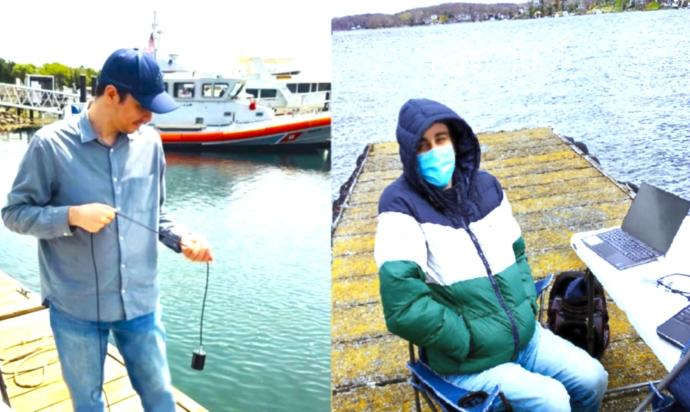Rami Rashid - ECE PhD Student of the Month - April 2023

Rami Rashid is a Ph.D. candidate in the Helen and John C. Hartmann Department of Electrical and Computer Engineering at the New Jersey Institute of Technology (NJIT). He is working under the advisement of Professor Abdi. He also earned his master's from ECE-NJIT in 2020, in which he received the 2020 ECE Top Performers Fellowship.
He has been a teaching assistant in the ECE department at NJIT; a research assistant at the Elisha Yegal Bar-Ness Center for Wireless Information Processing (CWiP) at NJIT. His research focuses on underwater signal processing for wireless communication and signal detection. His research with Professor Abdi is not limited to theories and simulations but validates by conducting realistic experiments in a lab as well as the field.
What would you say that could be the next big thing in your area of research?
Internet of Underwater Things (IoUT) could be the next big thing in underwater communication (UWC), which links underwater networks with each other. However, underwater channels are a very challenging issue, and the only feasible medium that works for UWC is acoustic waves, which travel for a long range with relatively slow motion and limited bandwidth. Advanced research and development in underwater communication make Large-scale Underwater Wireless Sensor Networks (UWSNs) feasible, which will pave the way for IoUT in the future.
Please share a thing that you have learned from your experience as a TA.
A teaching assistant job is a great privilege that Ph.D. students earn at NJIT. I served as a lab instructor for multiple labs in the ECE department and learned many things during this job. I gained excellent experiences in teaching, grading, interacting with the students, and how to address to the class in a simple way that makes the students grasp the ideas in a limited time. In addition to teaching skills, I gained management and communication skills.
Many conferences offered hybrid (in-person/online) options for participation after the lockdowns. What's your experience attending such a hybrid conference online?
Although attending a hybrid conference online can save time, effort, and money, it provides little interaction with other people working in the same research area. Nevertheless, I still believe that the conference should be hybrid (online and in-person) to some extent, so it gives the people who cannot make it in person a chance to attend it from their homes. A balance is needed.
Name a course that you took at NJIT that turns out to be very useful to your research.
Random Signal Analysis (RSA) course which thankfully was mandatory for the master's program in Electrical Engineering. Understanding RSA is necessary for people who work or intend to work with communication, detection and estimations, radar and sonar systems, and many other areas.
